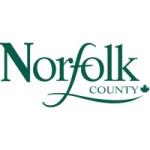The destruction of homes and property in the two most recent hurricanes to strike Florida is another reminder that Mother Nature always wins.
The scope of the devastation from Milton will take days to determine. The death toll will rise in the days ahead, as it has in the aftermath of Helene: the count is now approaching 250 from that deadly storm.
The billions of dollars of property damage will take years to sort out. With great respect, insurance companies are not noted for quickly handing out lavish cheques. Homes and businesses were destroyed. Rebuilding will be hard.
And of course, the question must always be asked, 'should it/they be rebuilt in that location?'
If the damage is in flood-prone areas, cities are more often faced with the question of allowing buildings back into those areas. It is hard—if that were the only criteria, most of New Orleans would be denied a building permit. But zoning restrictions are getting tougher, insurance companies are less likely to provide insurance to such properties, and municipalities are increasingly understanding that those tough decisions need to be made.
One tiny positive that comes out of many natural disasters is that it gives governments (at all levels) the chance to rethink. An opportunity to plan and design remedial conditions and insist on improved preventative measures.
We have seen that in the decisions by Fort McMurray to clear away trees and underbrush in areas surrounding their city. Other cities are denying building permits in flood zones. Other cities are re-writing their building codes to establish higher standards for construction materials and demanding design elements to better defend against weather events. Jasper will have many challenging decisions to make as it begins the long and difficult rebuilding process.
Natural disasters come in many shapes and sizes. The property damage can change communities. There is often loss of life, even more tragic. Local economies get hit. Some residents leave town, never to return after the trauma of such a disaster.
Sometimes these events are expected: Hurricane Milton was tracked for days, and evacuation orders were issued long before it arrived on land. Other events are a total shock—a tornado that suddenly swoops down, for example.
And of course, some disasters are from human actions, such as the horrific train explosion in Lac-Mégantic in 2013 that killed 47 and destroyed the town's centre. The repercussions from that are still being felt.
Canadians are by nature a generous people. We respond when our neighbours are in trouble. We help those who need assistance. We come together when we face a national crisis.
Millions of Canadians own property in Florida or visit the Sunshine State each year. After a night of darkness and terror across Florida, our thoughts go out to those communities hit by the tornadoes and hurricanes, just as they will to the next Canadian city or town that endures the next natural disaster.











